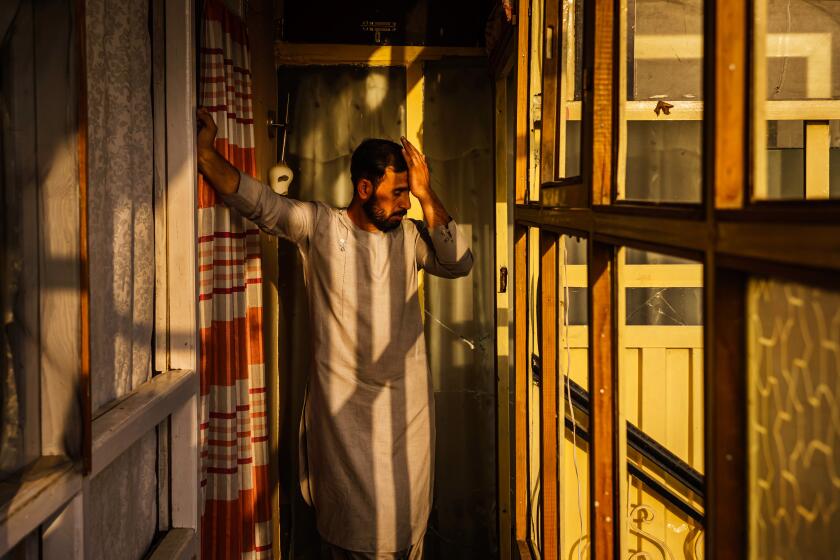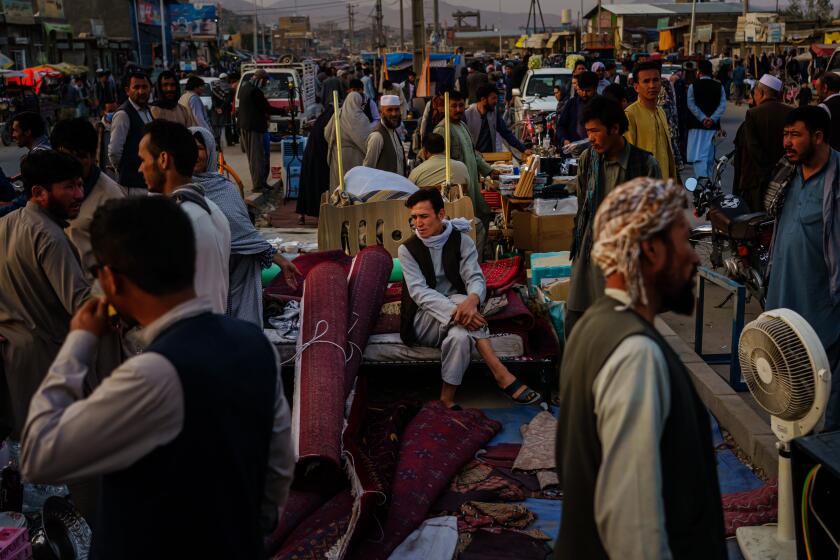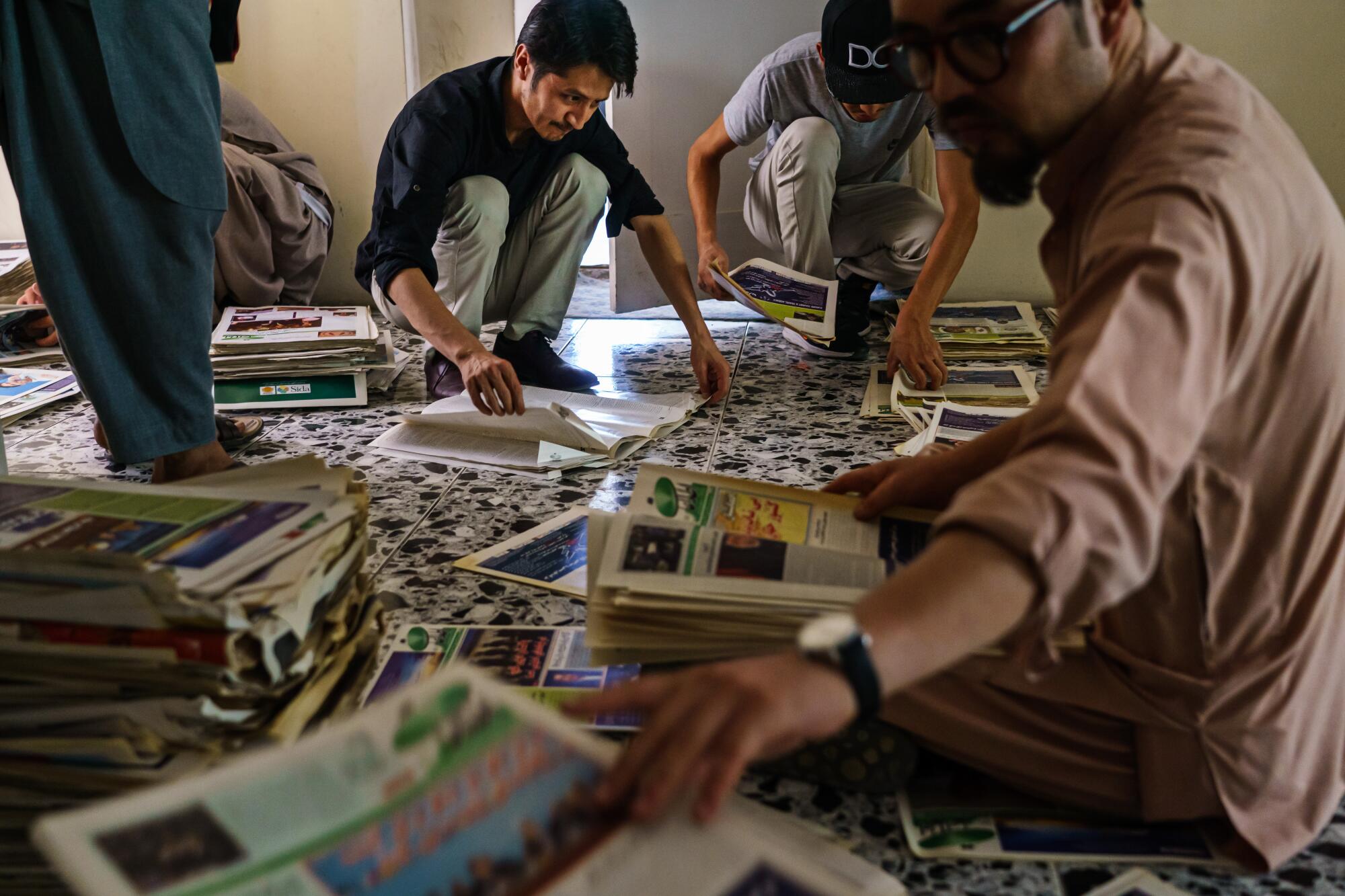
- Share via
KABUL, Afghanistan — It was Zaki Daryabi’s last day in Kabul and there wasn’t much time. In a few hours, he would board a Qatari evacuation flight that would take him out of Afghanistan, probably for good.
He woke up early and gathered his family’s luggage. He kept his farewells with his parents short. “I couldn’t see my father cry,” he said. He told his mother he wouldn’t go if she didn’t stop sobbing.
Twenty minutes later, he was at the office of Etilaatroz, the newspaper he founded in 2012, which had grown to become Afghanistan’s second-most-read daily. At 8 a.m., only the office staff was there. They cried as he took his leave.
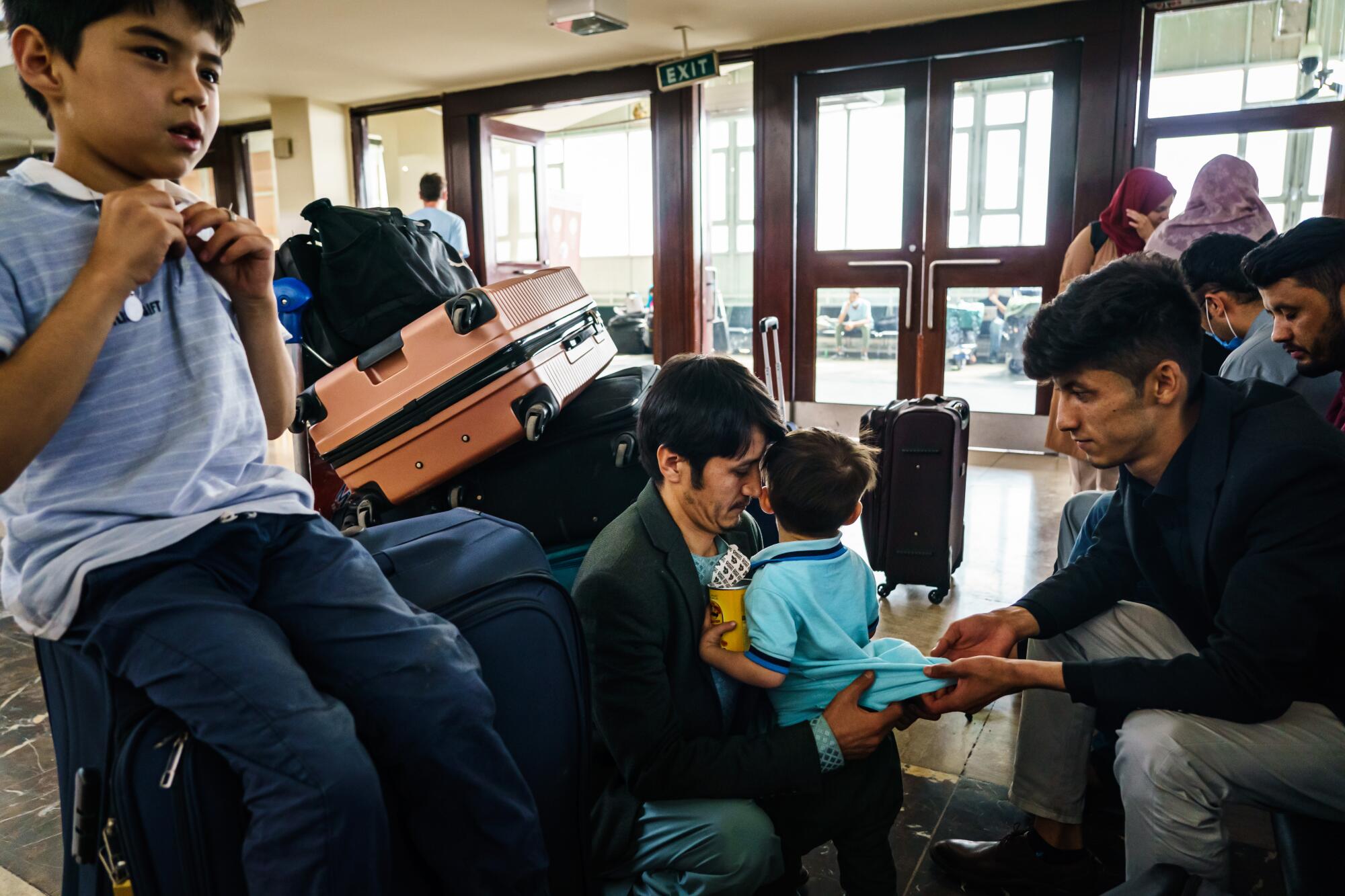
The decision to take his family and escape Afghanistan wasn’t an easy one for Daryabi. When the Taliban entered Kabul in mid-August, the 31-year-old father of three refused a seat on an evacuation flight. But then Taliban members brutally beat two Etilaatroz journalists, one of them Daryabi’s own brother. In the weeks afterward, his family kept pleading with him to find an escape route out of Afghanistan.
“They suffered while I remained in Kabul,” he said. When an evacuation flight opened up in early October, “I couldn’t ignore their request.”
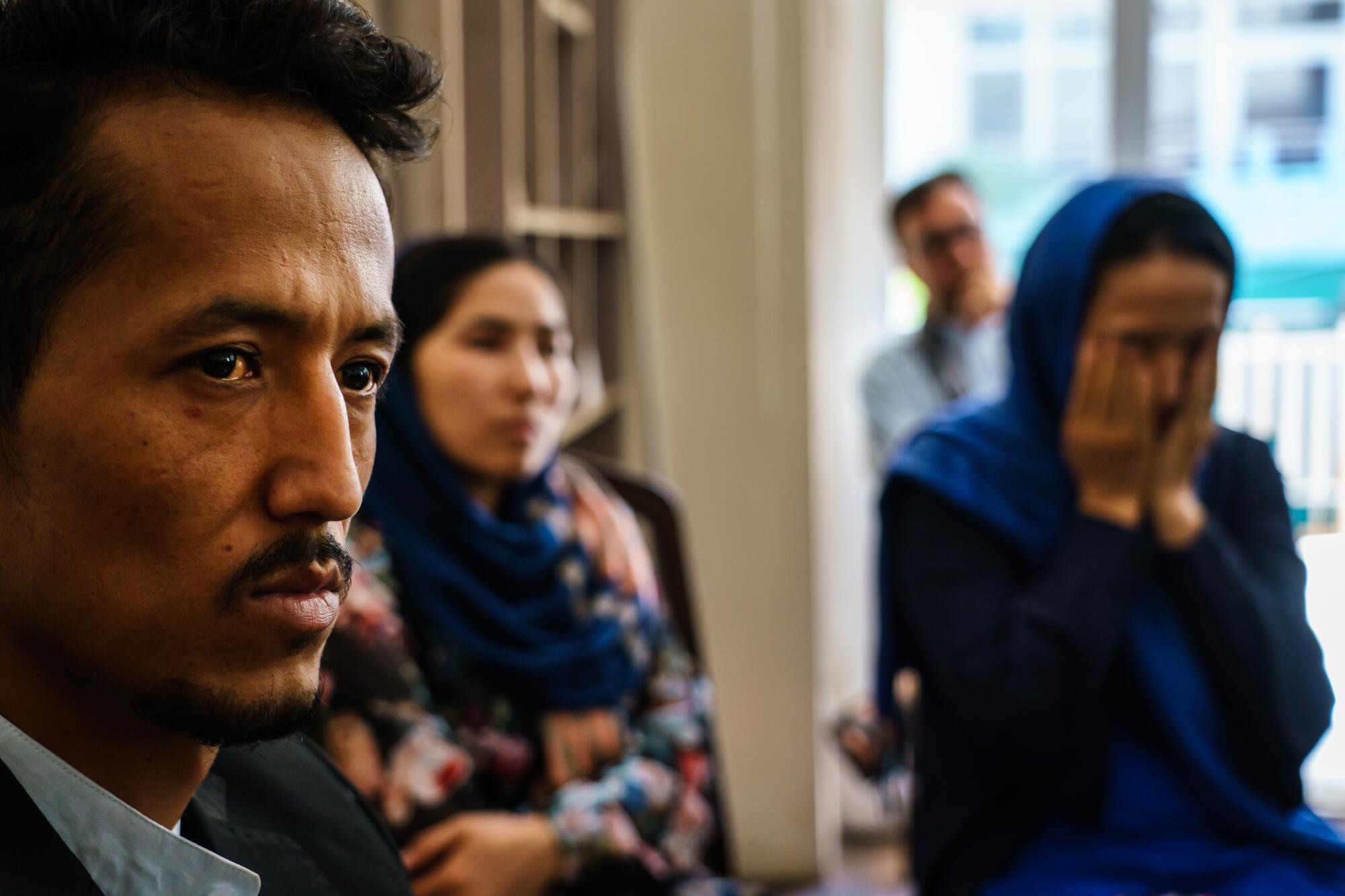
Daryabi’s departure was another blow for Afghan journalists struggling to navigate their country’s wholly changed environment. Since the Taliban’s takeover of the capital, mainstays of the media landscape like Etilaatroz — many of them buoyed by Western aid and considered one of the few tangible successes of the U.S.’ 20-year attempt to remake Afghanistan — have been forced to reassess how they can function in the new Islamic Emirate, if at all.
Many have decided they can’t. The last two months have seen the shuttering of more than 150 media organizations — some 70% of the country’s news outlets, according to the Afghan Journalists Safety Committee. Like Daryabi, now in a refugee camp in Doha, hundreds of journalists have left, joining an exodus of about 120,000 people — professionals, activists and others from the ranks of Afghanistan’s nascent civil society who see no place for their ideas under the Taliban.
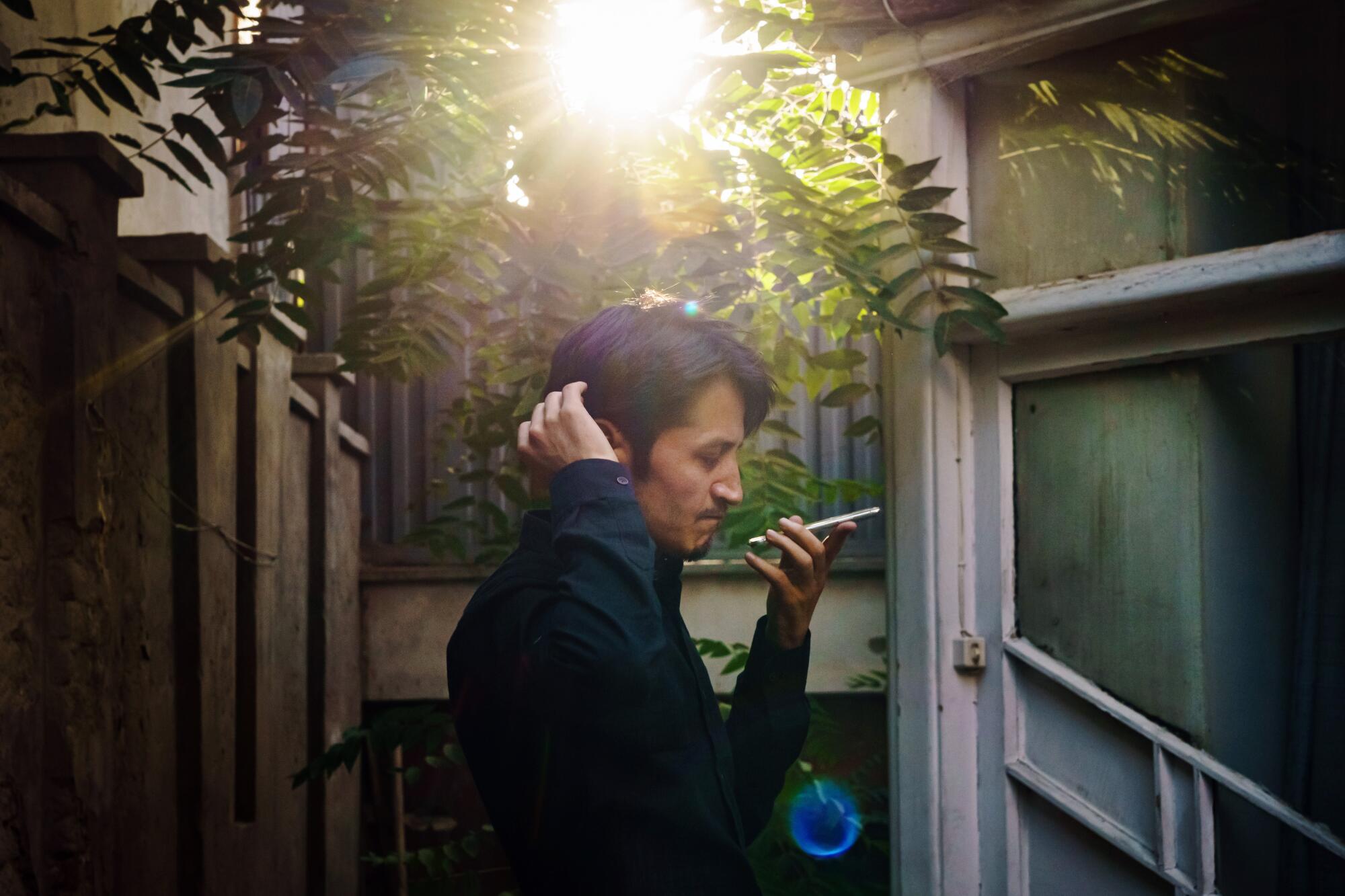
Those who remain must contend with Taliban masters trying to have it both ways: eagerly courting favorable coverage, especially internationally, through unprecedented news conferences and assurances of amnesty for adversaries, while also imposing strict control over what kind of news and programming are allowed in the country.
The State Department is trying to relocate some of the family members to the United States. Ten people, including seven children, were killed in a Aug. 29 drone strike the U.S. called a ‘tragic mistake.’
Last month, the Taliban issued 11 edicts to the media that included proscriptions on publishing or broadcasting reports which are “in conflict with Islam,” insult “national personalities” or “have a negative effect on the public.” Outlets are supposed to prepare their reports “in coordination” with the new government’s media center.
“The new rules are suffocating media freedom in the country,” Patricia Gossman, associate Asia director at Human Rights Watch, said in a statement this month. “The Taliban regulations are so sweeping that journalists are self-censoring and fear ending up in prison.”
Defying the Taliban can have a heavy price. On Sept. 8, Daryabi’s brother, Taqi, and Etilaatroz video journalist Nemat Naqdi went to cover a women’s rights protest in Kabul. Taliban enforcers quickly surrounded them, manhandling Taqi into a local police station and shoving him to the ground. They grabbed anything on hand — the butts of their machine guns, pipes, cables — and pounded him till he lost consciousness.
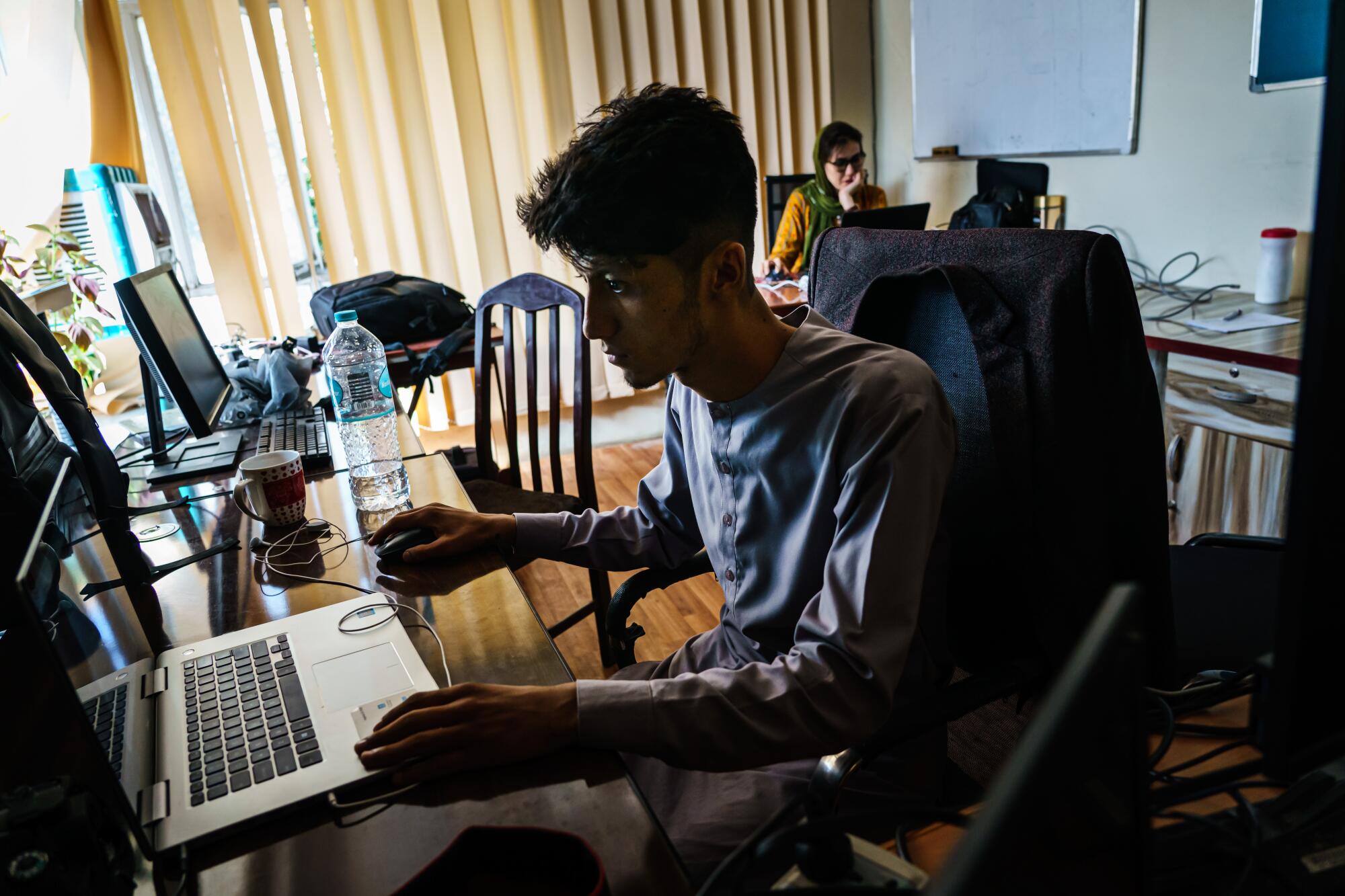
Naqdi soon received the same treatment. His left eye is still speckled with blood, and he has lost hearing in his left ear.
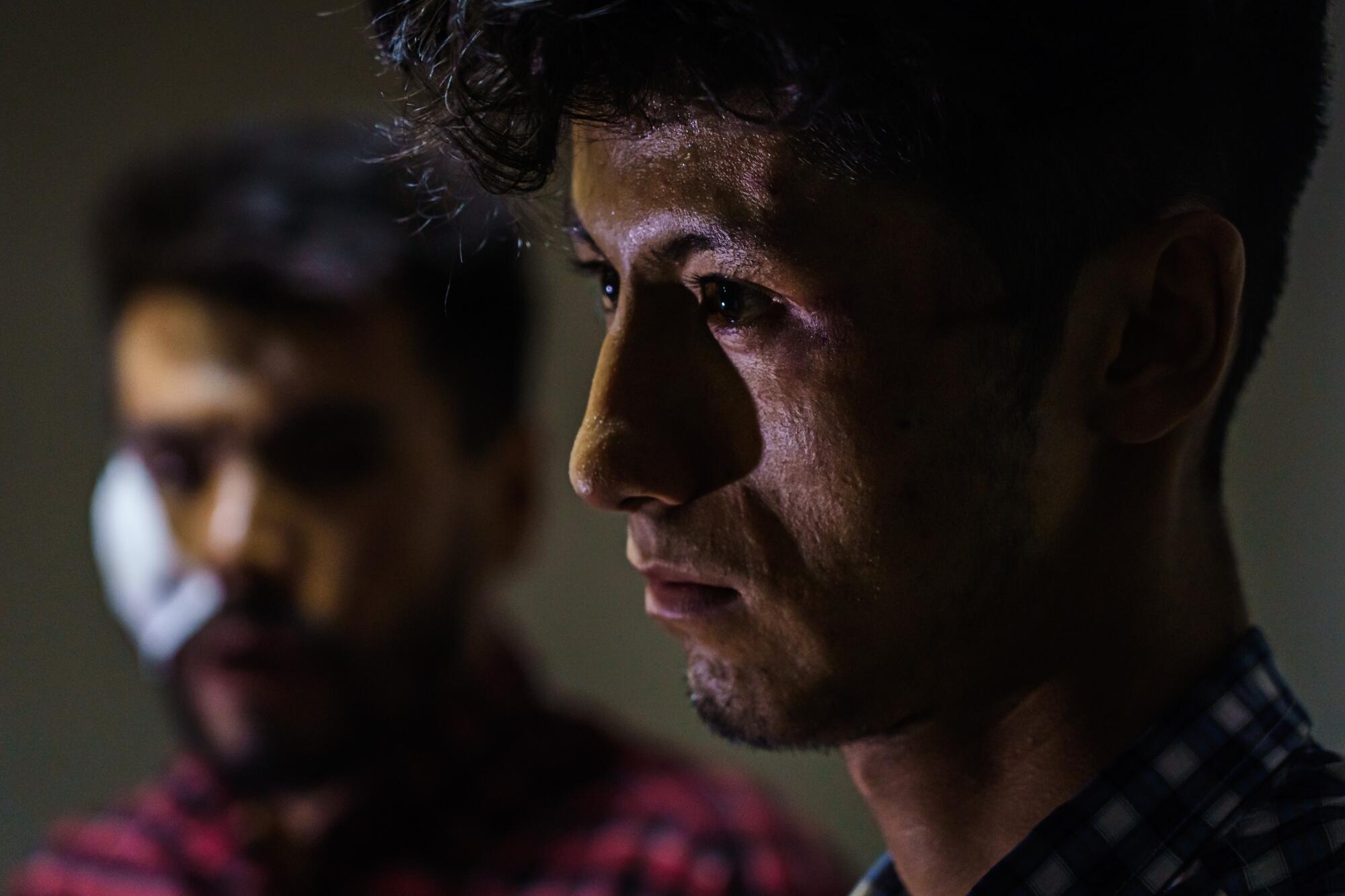
Almost a month after the savage beating, both Taqi and Naqdi were on the same Oct. 3 evacuation flight to Doha, the Qatari capital, with Daryabi. An hour after they boarded the plane, Taliban fighters barged into the Etilaatroz office, demanding to know where Daryabi was and warning staff members not to mention that the Taliban had come calling.
This week, at another women’s rally in Kabul, Taliban enforcers again attacked journalists and threatened to beat demonstrators for participating.
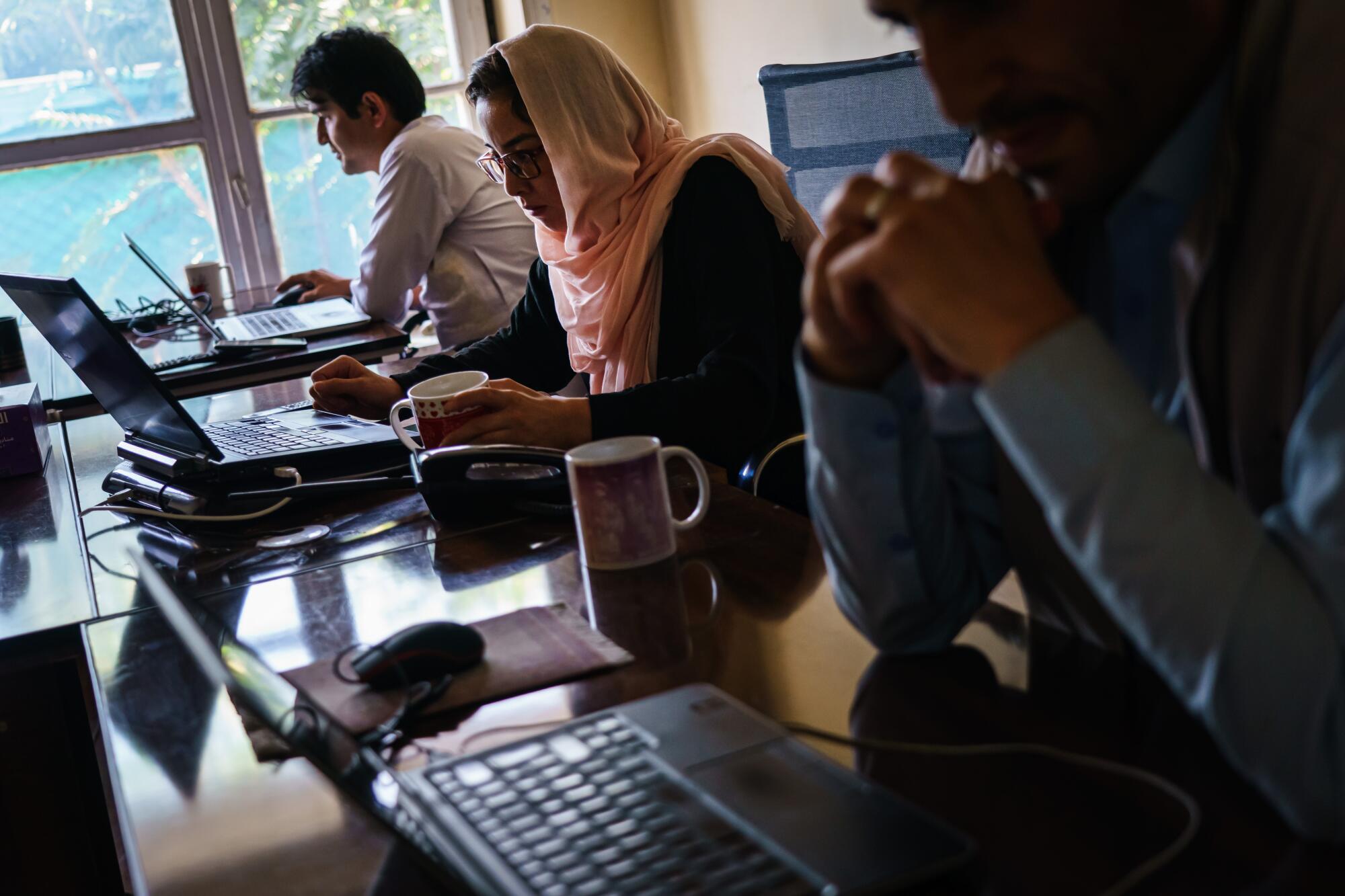
The situation is now especially difficult for women working in the media, given the Taliban’s suppression of women’s rights. The day Kabul fell to the Taliban, Fatima Roshanian, the 27-year-old editor and publisher of Nimrokh, a feminist magazine, started frantically burning whatever issues she had lying around the office before any fighters could barge in. She’s now in hiding in the capital. The magazine is all but shut down.
“During the first week of Taliban rule in Kabul, I would wake up, wash my face, put on my clothes and start to leave home for the office. But then I would remember the Taliban are in Kabul, that it is all finished,” she said.
“One thing is clear: People like me have no place in this country for now.”

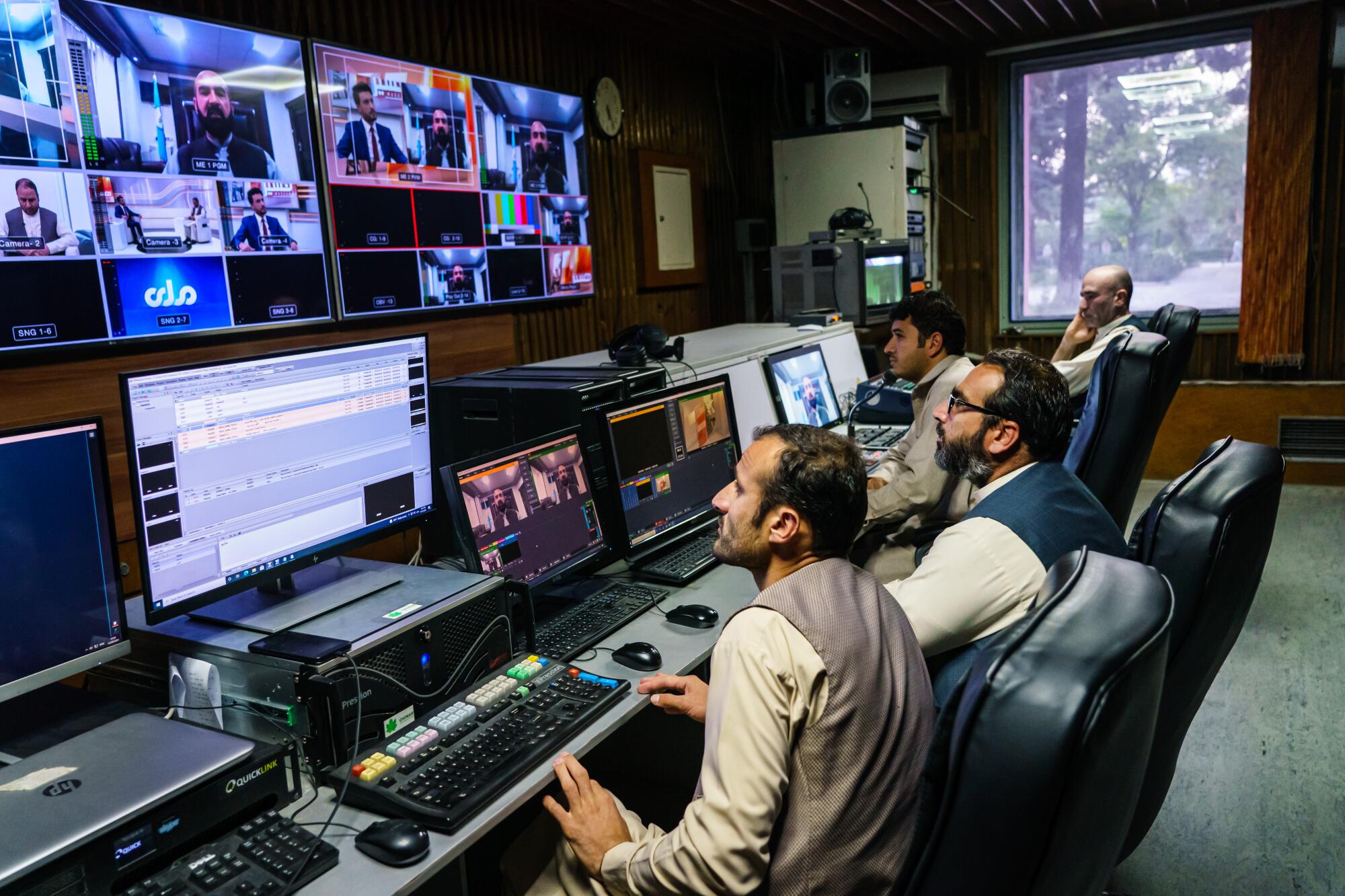
Some have decided to continue. As one of the largest media outlets in the country, Tolo, a private Afghan broadcaster with a staff of some 400 people, still operates its news division, said Khpolwak Sapai, deputy head of the unit. Although dozens of employees left during the U.S.-led airlift in August, the company managed to bring in replacements and turn other positions into remote work from abroad.
Sapai said female staff members were still showing up to work at the station and appearing onscreen in news broadcasts.
Restless Kabul residents ponder what remains and what changes in the Afghan capital after more than a month of Taliban rule.
“The new regulations, they’re very general and it’s difficult to understand what they mean. But somehow we are still producing news and analysis, at least 20 stories every day,” Sapai said. He acknowledged difficulties in covering events not sanctioned by the Taliban, such as the women’s protests last month.
“But it’s different these days. We have social media. Everyone has a smartphone. We’re relying more on citizen journalists,” he said.
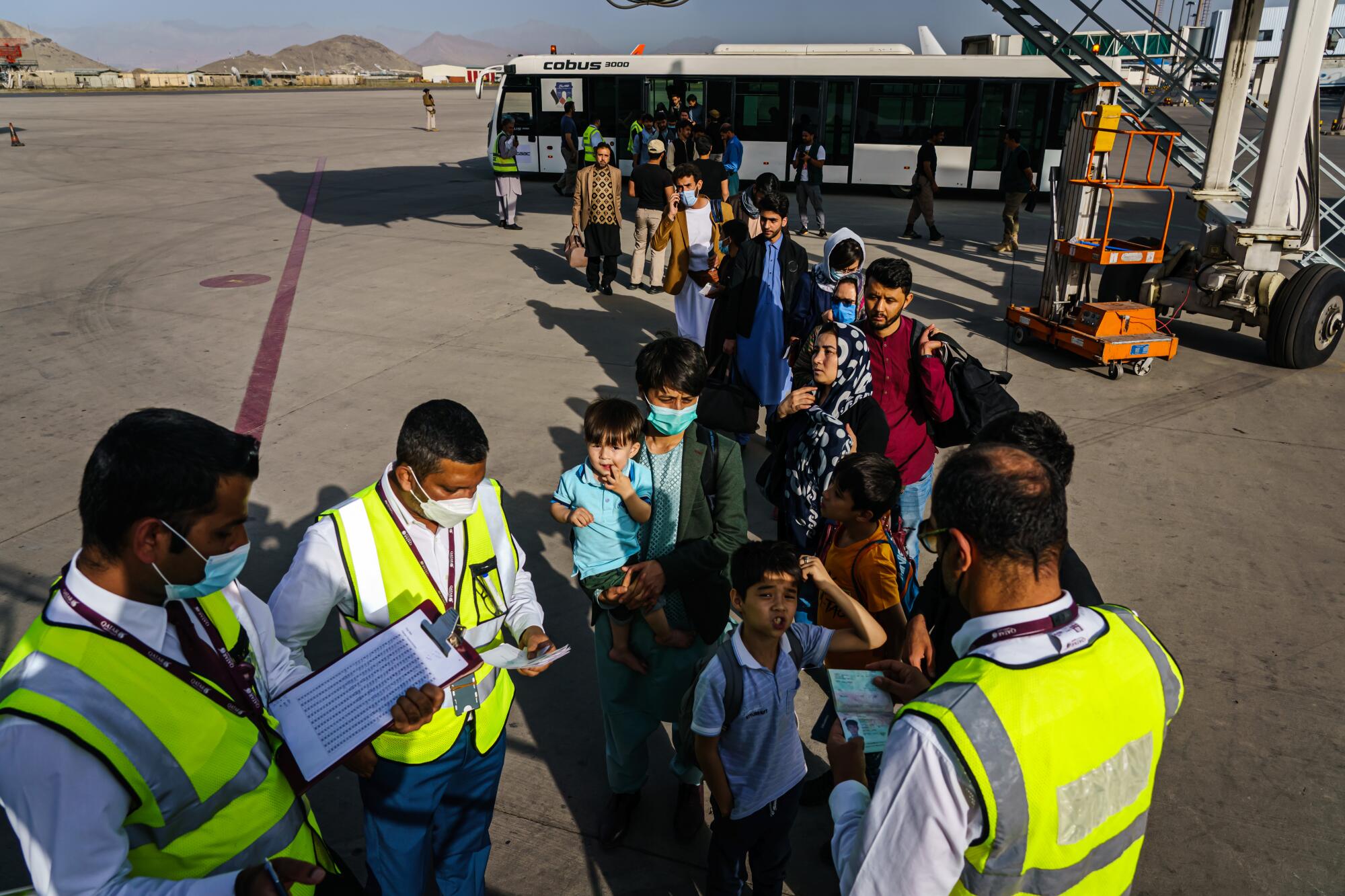
Those journalists who have left are haunted either by the guilt of fleeing the country they loved or by the nightmares that warp their memories of the life they abandoned.
“When you’re in the country and you’re dying, you die once. But when you’re out of the country, the way people look at you, mistreat you, feel sorry for you — you die every single minute,” said one Afghan newspaper journalist who was evacuated to another country in August and who requested anonymity for reasons of security.
“You die … because you’re a refugee. … You’re just a number, like millions of others, and then who cares about refugees?”
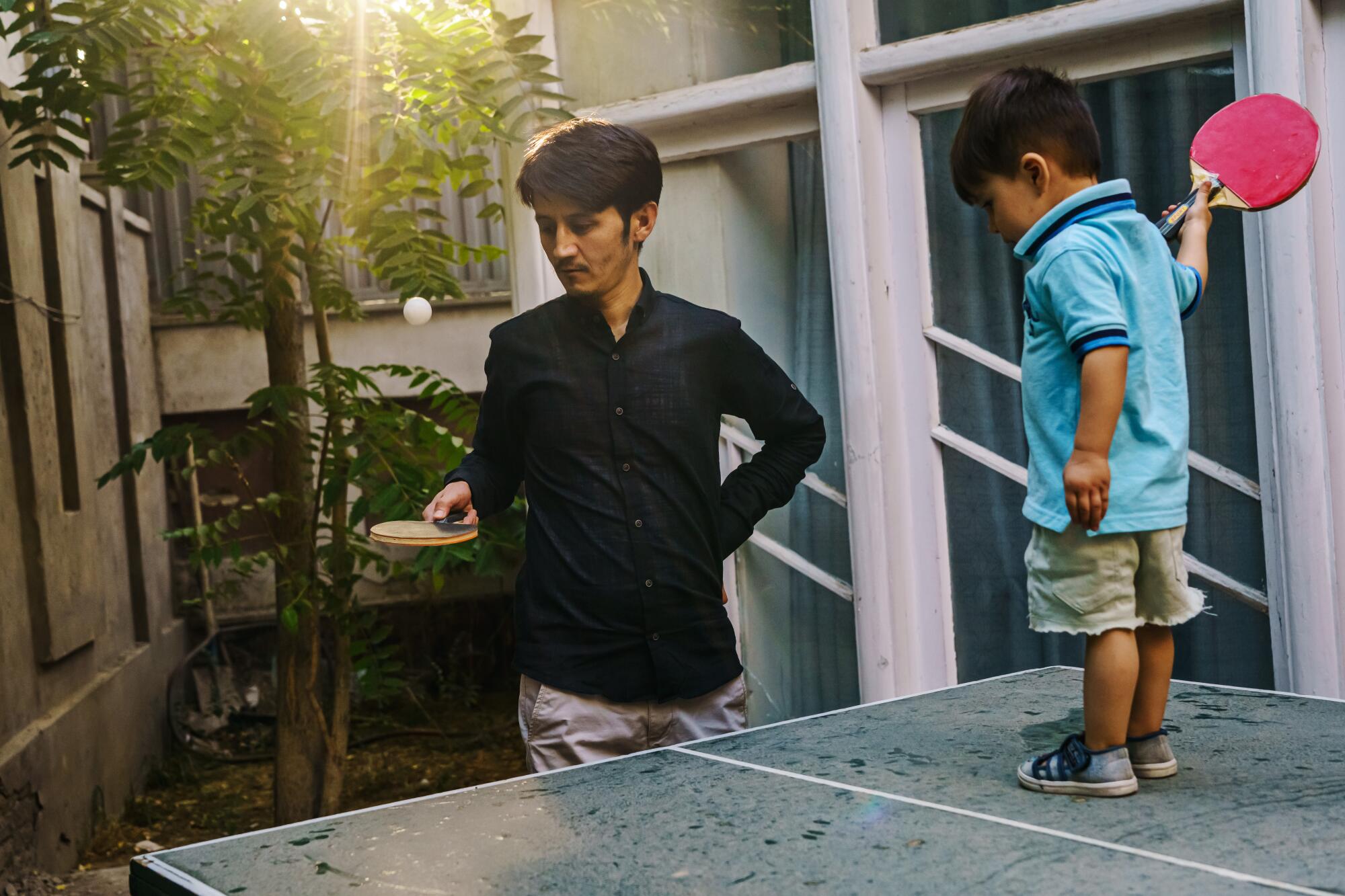
Daryabi still hopes to salvage what he can of Etilaatroz, which means information of the day in Dari. Sitting on his bed in a refugee camp in Doha, he is coordinating the newspaper’s now-scattered staff. Some of them remain in Kabul; others were evacuated under the auspices of various U.S. organizations and await onward visas or had reached Europe. Daryabi has been trying to raise funds online.
The newspaper is a small organization, but he speaks with obvious pride when he recounts how he, a farmer’s son from a village near Ghazni, built a newspaper from the ground up. It now has a daily circulation of 2,000 to 3,000, plus hundreds of thousands of followers on social media. Over the years, it has published hard-hitting exposes of government malfeasance and corruption; one memorable investigation in 2017 showed how former Afghan President Ashraf Ghani brokered land deals in return for election support in 2014.
Start your day right
Sign up for Essential California for the L.A. Times biggest news, features and recommendations in your inbox six days a week.
You may occasionally receive promotional content from the Los Angeles Times.
Daryabi often describes the paper as his oldest child, whose survival he has always acted to guarantee.
But at stake now is the general survival of fair and independent news in Afghanistan — and the fledgling civil society that the industry was helping to build, he said.
“If national and local media are shut down, what is being reported from Afghanistan will be incomplete,” Daryabi said. “Afghanistan should not be without journalists or media again.”
Times staff writer Marcus Yam contributed to this report.
More to Read
Sign up for Essential California
The most important California stories and recommendations in your inbox every morning.
You may occasionally receive promotional content from the Los Angeles Times.
